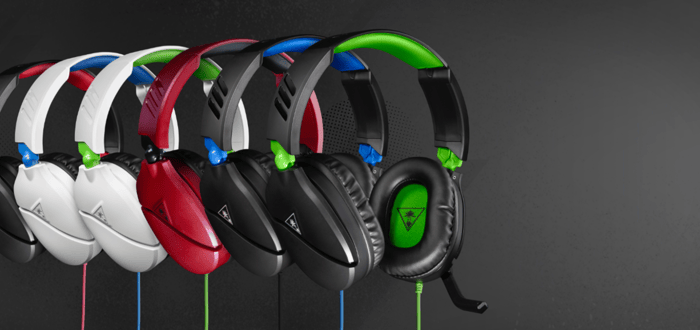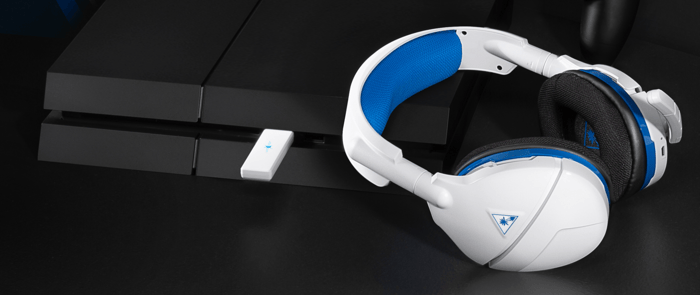Turtle Beach (HEAR -1.95%) was one of the most volatile stocks of 2018. Shares of the gaming headset maker started the year at less than $2, surged to more than $30 by August, and were cut in half by the beginning of 2019. That pain continued as the stock stumbled nearly 30% in the first half of the year.
Turtle Beach's meteoric rise and fall were attributed to the explosive growth of "battle royale" games like PUBG and Fortnite, which let players communicate via headsets. Turtle Beach launched the first Xbox One-compatible wireless gaming headset just as the battle royale boom started, and it reaped massive rewards with triple-digit sales growth throughout most of 2018.

Image source: Turtle Beach.
But booms often end in busts, and Turtle Beach soon faced stiff competition from first-party and third-party headset makers, tough year-over-year comparisons, and the saturation of the battle royale market. Turtle Beach's revenue growth decelerated sharply, its earnings plunged, and investors flocked to the exits.
However, that sell-off reduced Turtle Beach's forward P/E ratio to 8, and it trades at about 0.5 times next year's sales. CEO Juergen Stark, CFO John Hanson, and directors Andrew Wolfe and Ronald Doornink also recently bought nearly $400,000 in shares. Those purchases are small relative to Turtle Beach's market value of about $150 million, but they indicate that the stock could finally be bottoming out. So is it finally safe to buy Turtle Beach's stock again?
What happened to Turtle Beach?
Turtle Beach's posted triple-digit sales growth in the first three quarters of 2018. That streak ended in the fourth quarter when its sales rose only 40%, and decelerated again in the first quarter with just 10% growth.
It expects its sales to decline 29%-34% in the second quarter and fall 14%-16% for the full year. Those estimates are disappointing, especially since they include revenue from its pending acquisition of PC accessory maker ROCCAT. Without the ROCCAT acquisition, which was arguably a desperate attempt to diversify itself away from gaming headsets and the battle royale market, its full-year revenue would decline about 23%.
Turtle Beach's gross margin also contracted 380 basis points annually to 33% during the first quarter due to higher promotional and marketing expenses, refurbishing costs, and higher sales of lower-margin devices. Its adjusted net income improved 10% to $2.2 million, but its EPS fell 19% due to a higher number of outstanding shares.
Turtle Beach expects to post a loss during the second quarter, and for its full-year EPS to decline 25%-32%. That dismal outlook doesn't include any gains from ROCCAT, which is only expected to boost its earnings growth starting in 2020.

Image source: Turtle Beach.
The biggest problems
Turtle Beach's biggest challenges include competition, long headset upgrade cycles (which last up to two years), sluggish video game sales, and waning interest in battle royale games.
Sony (SONY 0.05%), Microsoft (MSFT -1.44%), Logitech (LOGI 0.80%), Razer, and other companies all sell gaming headsets that are comparable to Turtle Beach's. Turtle Beach still controls about 40% of the console headset market, but that could be attributed to the first mover's advantage it gained in 2017.
Therefore Turtle Beach's share could slide as users finally upgrade their aging headsets. Some gamers might even postpone their upgrades until Microsoft and Sony launch their new consoles in 2020.
Interest in Fortnite peaked last March according to Google Trends, and the game's viewership numbers on Twitch are declining. Electronic Arts' (EA -0.44%) Apex Legends was considered a potential successor to Fortnite earlier this year, but interest in the game seemed to peak after a few short months. That's troubling, because Juergen Stark mentioned Apex as a potential catalyst several times during the first-quarter conference call.
Turtle Beach's plan for ROCCAT is also worrisome, because it expands its portfolio with PC keyboards and mice -- which are both heavily commoditized products. Stark noted that sales of ROCCAT keyboards were robust in Germany, but it's unclear how the brand will fare against Logitech and other major players in other markets.
Turtle Beach's stock is cheap for a reason
Turtle Beach's recent insider purchases sparked a rally in the stock, but I suspect that was sparked by shorts covering their positions -- about half of its shares were being shorted at the end of May. Therefore, investors shouldn't follow management's lead and buy shares down here. The stock is cheap for a reason, and the strongest headwinds won't dissipate anytime soon.





